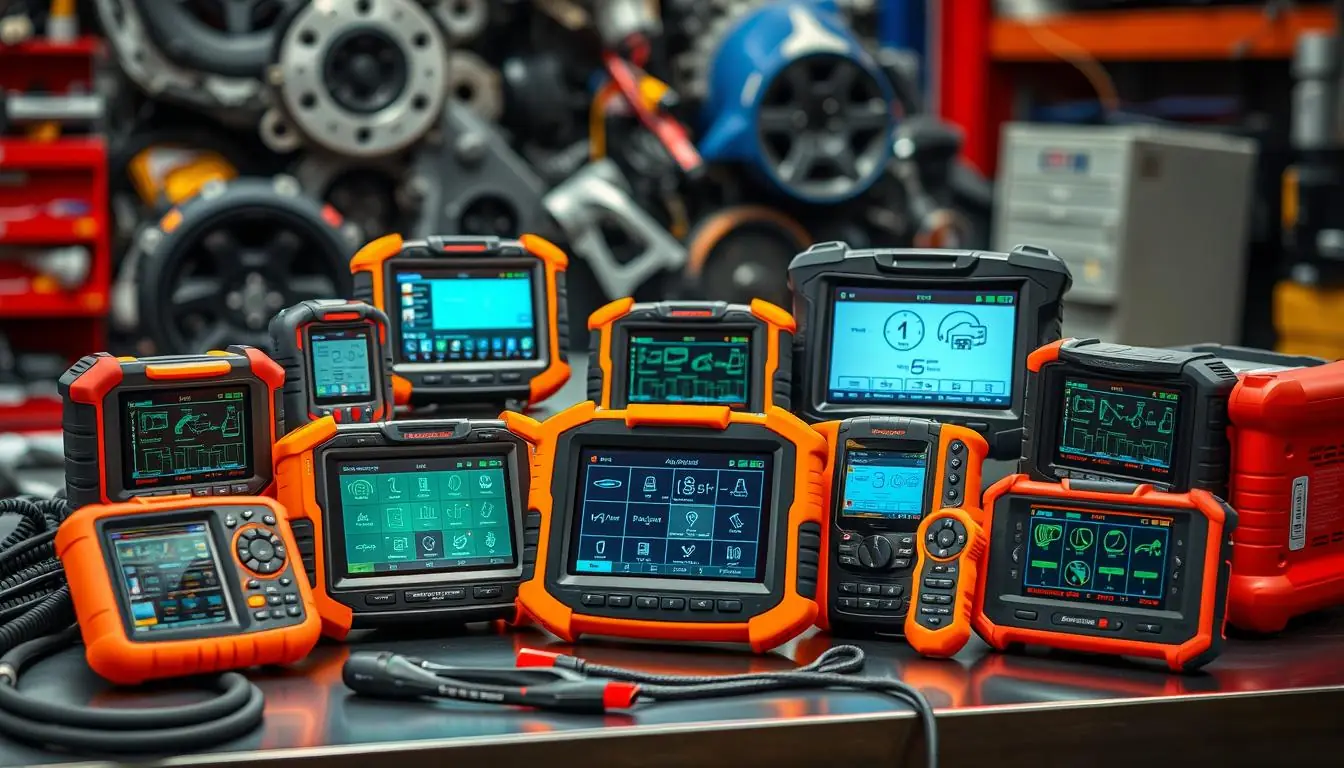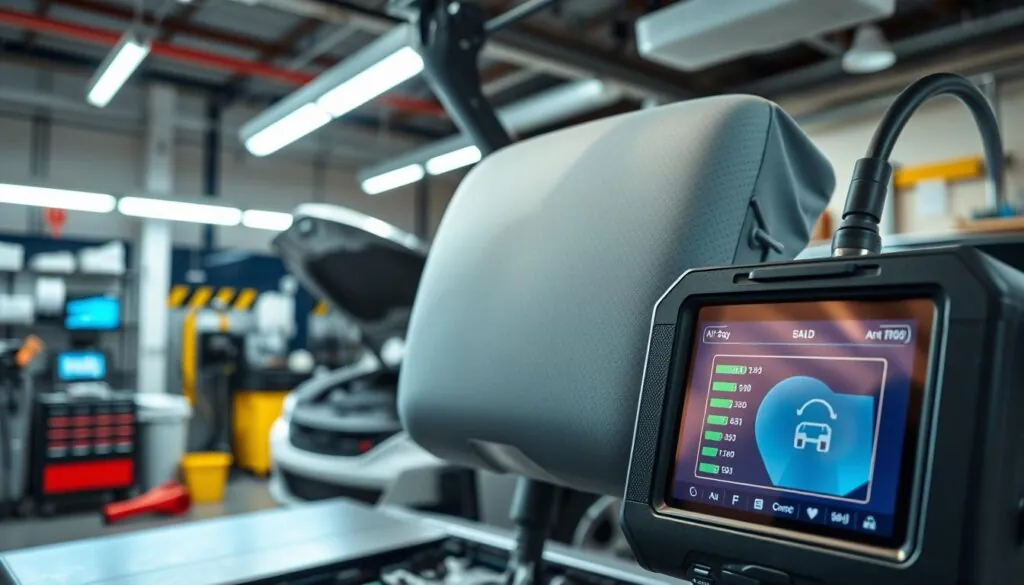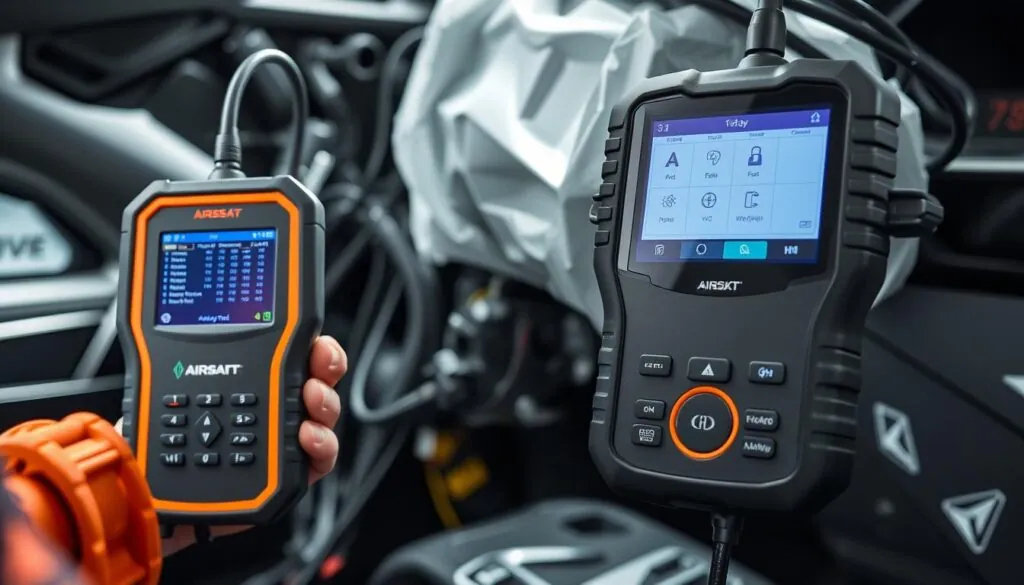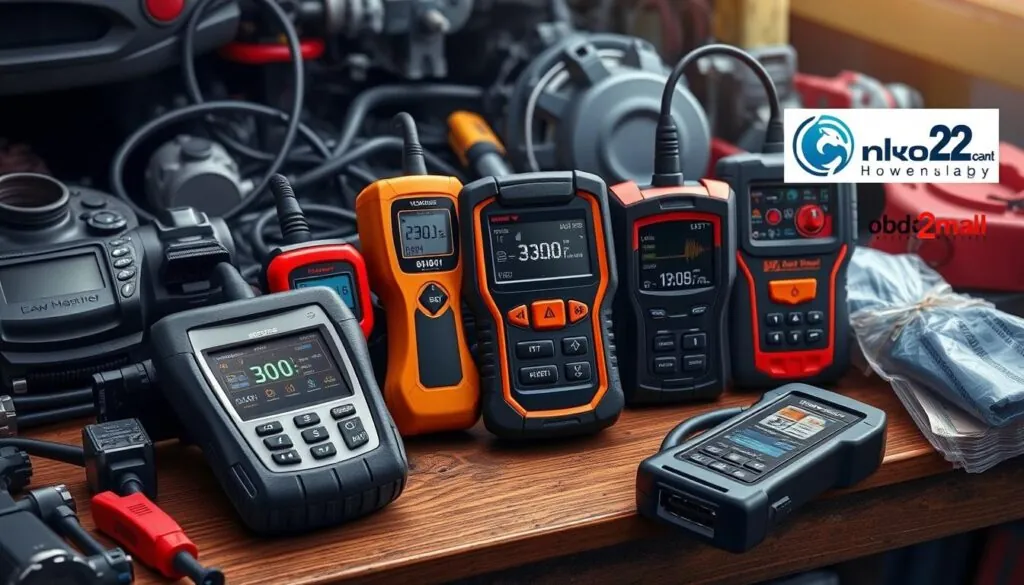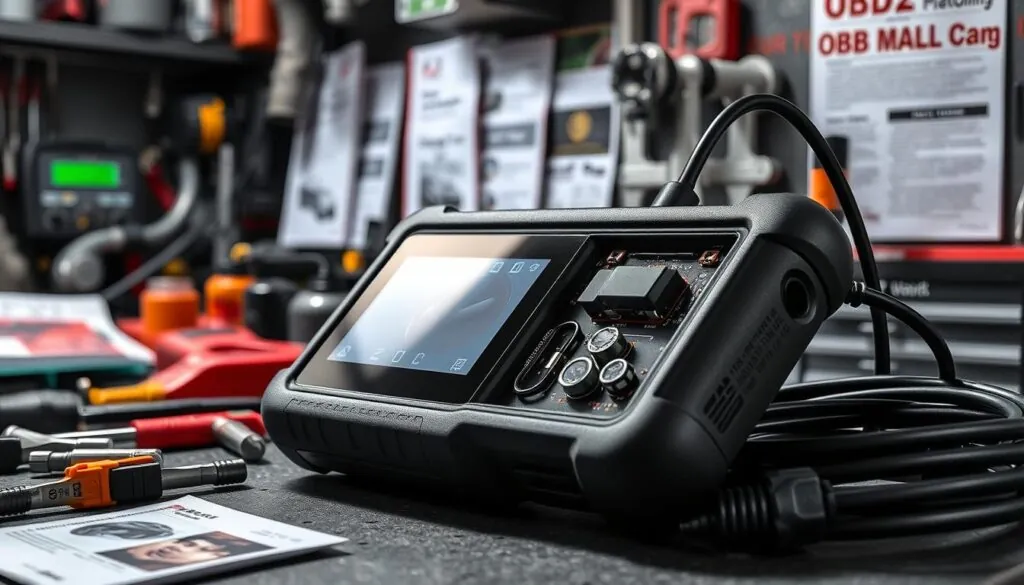Hey there! If you’re into cars like me—a lifelong auto enthusiast and certified technician—you know how crucial air bag scan tools are. These aren’t just fancy gadgets; they’re your ticket to keeping modern vehicle safety systems in check. Let’s dive into why every garage needs one and how they make a real difference.
Why You Need an Air Bag Scan Tool in Your Garage
Today’s air bag systems are like high-tech spider webs—full of sensors, modules, and backup power. A solid scan tool isn’t optional; it’s a must-have. Here’s what it can do for you:
- Spot Trouble Fast – Zero in on fault codes from seatbelt tensioners to crash sensors with pinpoint accuracy.
- Reset Like a Pro – Clear those pesky error codes after a fix and make sure everything’s calibrated right—no guesswork allowed!
- Check Backup Power – Test if the air bag module can keep things running for over 30 minutes after a crash, even if the battery’s toast.
Trust me, I’ve seen these tools turn a confusing dashboard light into a quick fix. You don’t want to mess around when it’s about safety!
It’s More Than Just Air Bags
What’s really cool? These tools don’t stop at air bags. They’re like the Swiss Army knife of diagnostics, covering:
- ABS Brakes – Keep those anti-lock brakes in line.
- Engine Control (ECU) – Dig into what’s making your engine tick.
- Occupant Sensors – Ensure the system knows who’s in the seat.
Last week, I tracked down a sneaky air bag warning light to a rusty ABS sensor. Most DIY folks would’ve missed that connection—it’s a game-changer!
Safety’s Non-Negotiable: The 30-Minute Lifeline
Let’s talk about that 30-minute backup power. Picture this: a nasty crash cuts your battery loose. That backup capacitor has to:
- Hold a charge after impact.
- Keep hazard lights blinking.
- Stay ready to deploy air bags if needed.
Skimp on testing this, and you’re rolling the dice. I check my own cars monthly—it’s that big a deal. You should too!
How to Pick the Perfect Air Bag Scan Tool
Not all tools are the same, so here’s what to look for:
- Live Data – Watch sensors react as you poke around—great for tricky, on-and-off issues.
- Brand Compatibility – American cars need different setups than European ones. Match your tool to your ride.
- Crash History – Some tools pull data like speed or braking from before a wreck. Super handy for figuring out what went wrong.
Pick right, and you’re not just fixing cars—you’re keeping families safe.
The Importance of Regular Air Bag Checks
Keeping air bags in tip-top shape isn’t a “set it and forget it” deal. Regular scans—every 3-6 months or before a big trip—catch problems early. For older cars with high miles, it’s even more critical. Tools like the Foxwell NT909 can reset air bags, check ABS, and more, all in one go. It’s fast, accurate, and saves you cash on big repairs down the road.
For heavy-duty trucks hauling hazardous loads, it’s life-or-death. Their SRS air bags cut injury risks in crashes, so staying on top of maintenance is a no-brainer.
“Good air bag diagnostics aren’t just about fixing cars—they’re about keeping people safe and vehicles reliable.”
What Makes Air Bag Scan Tools Tick?
These tools are built to tackle vehicle safety head-on. The air bag itself—tucked in the steering wheel, dash, or sides—relies on sensors like accelerometers to spot a sudden stop. The SRS module then decides when to pop the bags or tighten seatbelts.
Tools like the Innova can read trouble codes (think B0028 for deployment issues) and reset systems after repairs. Plus, they pull live sensor data and handle extras like ABS bleeding. It’s all about making fixes easier and safer.
| Key Component | What It Does |
|---|---|
| SRS Diagnostics | Reads and clears air bag trouble codes for spot-on fixes. |
| Real-Time Data | Shows live sensor info for a full diagnostic picture. |
| Extra Features | Handles ABS bleeding, air bag resets, and more. |
For truckers, this tech slashes injury risks and can even lower insurance costs. Pretty sweet, right?
How Do These Tools Actually Work?
It’s simple but slick. Plug the tool into your car’s OBD-II port, and it chats with the onboard computer. You’ll get trouble codes, sensor readings, and even deployment history. Spot a bad sensor or wonky wiring? Fix it, reset the system, and you’re good to go. The best tools talk to both standard OBD-II and brand-specific systems for a complete safety rundown.
Types of Air Bag Scan Tools Out There
There’s a tool for every need. Basic ones read and clear air bag codes—perfect for quick jobs. Then you’ve got heavy hitters like the Foxwell NT909, tackling air bags, ABS, and ECU tweaks. They’re user-friendly, Bluetooth-ready, and updateable, so they keep up with new cars without breaking the bank.
| Tool | Price | User Feedback |
|---|---|---|
| Innova CarScan Pro #5610 (Premium) | $411.75 | Loved for its depth. |
| Innova CarScan Tech #5510 (Mid-range) | $294.00 | Solid performer, great reviews. |
| Innova CarScan Diagnostics #5410 (Budget) | $212.00 | Big value, happy users. |
YouTube’s got some great demos—check this one out:
Who’s Using These Tools?
From auto shops to collision centers, these tools are everywhere. Fleet managers keep their trucks safe, while mechanic schools use them to train the next generation. They’re all about catching air bag issues early and keeping vehicles road-ready.
What’s Next for Air Bag Scan Tech?
The future’s looking bright! Expect wireless tools syncing with your phone, plus AI smarts to predict maintenance. Imagine faster, sharper diagnostics keeping you ahead of the curve. Pretty exciting stuff for car geeks like us!
Choosing Your Air Bag Scan Tool: A Quick Guide
Ready to grab one? Here’s how to nail it:
- Know Your Needs – Simple air bag checks or full-system scans? Match the tool to your workload.
- Check Compatibility – Ensure it works with your cars or trucks—OBD-II is standard, but older models might need extras.
- Keep It Simple – Look for a clear interface and easy controls. Touchscreens are a win!
- Stay Updated – Pick a tool with regular software updates—some offer freebies for a year.
- Go Durable – A tough tool lasts longer in the shop. Quality beats cheap every time.
- Watch the Wallet – Balance cost with long-term savings. A $500 tool might outshine a $200 one in the end.
Take your time, and you’ll find a tool that’s just right for keeping your rides safe.
Wrapping It Up
Air bag scan tools aren’t just for pros—they’re for anyone who cares about safety. Whether you’re fixing up your own ride or running a shop, these gadgets bridge the gap between “hope it works” and “yep, it’s safe.” Stick around—next week, I’ll tackle those annoying false air bag warnings!
